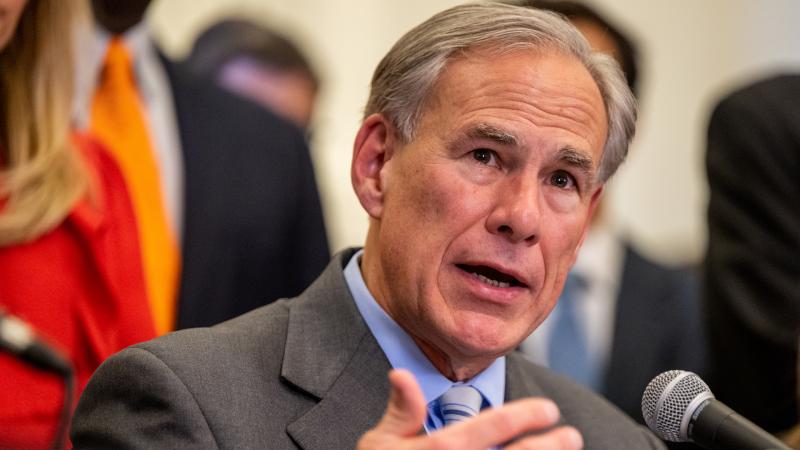Biden administration promised transparency but delivered stonewalling
Ignored subpoenas, stonewalled document requests, and uncooperative department secretaries indicate the administration is shielding information rather than delivering promised transparency.
Upon taking office in January 2021, the administration of President Joe Biden promised to deliver on a new era of transparency. A pattern of ignored subpoenas, stonewalled document requests, and uncooperative department secretaries are telling a different story, building a growing body of evidence the administration is shielding information rather than delivering promised transparency.
The evidence that the Biden administration is withholding information and testimony from the prying eyes of an unfriendly Congress has stacked up since Republicans gained control of the House of Representatives in 2022.
For example, several Biden cabinet secretaries have come under scrutiny for failing to respond to legitimate congressional subpoenas. The House was also forced to impeach one administration official and hold another in contempt. Finally, countless requests and subpoenas for documents in investigations ranging from the Biden impeachment probe to reviews of agency programs and executive orders remain unanswered.
After President Biden took office, his administration promised to usher in a new era of transparency after years of what they viewed as an opaque Trump Administration.
“[His] objective and his commitment is to bring transparency and truth back to government — to share the truth, even when it’s hard to hear,” then-Press Secretary Jen Psaki told reporters in an inauguration day press conference at the White House.
The White House never stopped echoing this claim, even as the Biden officials tried to shield their agency’s from congressional oversight.
“President [Joe] Biden is proud to lead the most transparent administration in American history…” said White House spokesman Michael Kikukawa said in 2023.
Secretary of State Blinken ignores subpoena
On Tuesday Secretary of State Antony Blinken, who has served in the role since the beginning of the Biden Administration, failed to answer a congressional subpoena to appear for testimony before the House Foreign Affairs Committee.
The committee previously subpoenaed Blinken on September 3 and September 18 for his testimony on the administration’s widely criticized Afghanistan withdrawal. Blinken instead sent a letter requesting his testimony be rescheduled due to a general session of the United Nations in New York.
“U.S. representation at the highest levels in these engagements is essential,” Blinken argued in the letter and promised to reschedule his testimony when he returned to Washington.
After Blinken refused to show, the committee passed a contempt of Congress resolution against the secretary. Chairman Michael McCaul, R-Texas, previously said the secretary deserved to be held in contempt for ignoring the “duly issued subpoena.”
Secretary Blinken’s failure to cooperate with the House Republican probe has not been an isolated incident, but is rather part of a pattern of Biden administration officials attempting to skirt legitimate congressional oversight into their activities. If the House succeeds in holding the secretary in contempt, he will join Attorney General Merrick Garland and Homeland Security Secretary Mayorkas—both of whom faced censure, and in the latter case, impeachment from the House.
Secretary Mayorkas’ impeachment
DHS Secretary Mayorkas was impeached by the House earlier this year over his “willful and systemic refusal to comply with the law” and a “breach of trust.” House Republicans argued that Mayorkas, who presided over the encounter of over 2 million illegal immigrants since 2021, was refusing to enforce immigration laws and violated his oath of office.
In the articles of impeachment, House Republicans said Mayorkas obstructed lawful oversight of his department to cover for his failure to follow immigration law. They also highlighted Mayorkas’ refusal to comply with duly issued congressional subpoenas and the department’s delays in giving information to the inspector general to facilitate their internal investigations.
The House said Mayorkas refused to respond to several invitations from House Republicans to testify and participate in the investigation of the Biden administration policies and his department, though Mayorkas denied this characterization.
Attorney General Garland rebuffs subpoenas
After the special counsel investigating President Biden’s alleged mishandling of classified documents released a scathing report that highlighted the president’s memory issues and age, Attorney General Garland rebuffed House Republican attempts to obtain audio recordings of interviews from the investigation.
The Republicans believed special counsel Robert Hur’s conclusions about Biden’s mental capacity to the protestations of President Biden and his staff warranted further investigation. Their drive to acquire the tapes grew after it was reported that the official transcripts released as part of the report were edited to omit filler or repeated words.
Initially, the Justice Department refused to turn over the audio tapes of Biden's interview to Congress, citing concerns about "deep fake" technology that could allow the audio to be altered and presented as authentic.
But, after House Republicans subpoenaed them, President Biden invoked executive privilege, a justification that Garland ran with to avoid turning them over to Congress. As a result, House Republicans voted to hold Garland in contempt over the refusal to turn over the tapes and stonewalling their investigation.
Shortly after, the DOJ released a memo explaining why it would not bring the contempt charges against Garland, citing a long tradition of executive privilege protections. "Consistent with this longstanding position, no U.S. Attorney has pursued criminal contempt charges against an Executive Branch official asserting the President’s claim of executive privilege," the department’s memo said, according to The Hill.
Biden bucks subpoenas
Several Biden administration officials have successfully stonewalled another House Republican investigation into what they are calling “Bidenbucks,” or the programs implemented by executive agencies to “promote voter registration and voter participation.” The direction to start these programs was provided in a Biden executive order a few months the president’s inauguration.
House Republicans, led by House Administration Committee Chairman Rep. Bryan Steil, are concerned that the program may violate the National Voter Registration Act and impact the fairness of national elections by using federal government resources for politics.
Steil recently subpoenaed officials from the Departments of Labor, Housing and Urban Development, Health and Human Services, Justice, and Agriculture for sworn depositions before his committee after those agencies failed to produce documents and records pursuant to another subpoena he issued earlier.
"Americans deserve transparency and trust in their elections. However, the Biden Administration has refused to comply with a lawfully issued congressional subpoena and cooperate with our investigation into their plan to use federal agencies to 'get out the vote,'" Steil said in a statement.
Impeachment inquiry & pseudonymous emails
As part of its wide-ranging impeachment inquiry into President Biden, the House Oversight Committee attempted to obtain more than 80,000 pages of emails located by the National Archives from Biden’s private, pseudonym email from when he was Barack Obama’s vice president. However, the National Archives turned over records at a glacial pace, according to the committee’s chairman, James Comer.
“The National Archives has identified 82,000 pages of emails where then-Vice President Joe Biden used a fake name, but the Biden White House has only cleared 14 pages in response to multiple Oversight Committee requests for documents related to then-Vice President Biden," Comer told Just the News last October.
The National Archives was still turning over batches of emails in March, when it gave nearly 6,000 pages of emails to the committee. That same month, the Archives confirmed that it had only turned over a small fraction of the emails, 5,860 of the roughly 82,000 pages.
Equal justice for some, more equal justice for others
Under the Biden administration, two Trump aides have been imprisoned for a contempt of Congress. Steve Bannon, a former Donald Trump White House strategist, reported to a federal prison in in July to begin a four-month sentence for defying a congressional subpoena.
Peter Navarro, who served as a top trade adviser to former President Donald Trump, was released from federal prison in July after serving a four-month sentence for defying a congressional subpoena, according to the Federal Bureau of Prisons.
The House voted in June to hold Attorney General Merrick Garland in contempt of Congress for refusing to turn over audio of President Joe Biden’s interview in his classified documents case, but after having asserted "executive privilege," it is unlikely that Garland will face jail time. The decision whether to prosecute falls within the purview of the Department of Justice, which Garland himself heads.
Administrations of both major political parties have long held the position that officials who assert a president’s claim of executive privilege can’t be prosecuted for contempt of Congress.
The Facts Inside Our Reporter's Notebook
Links
- Psaki told reporters in an inauguration day press conference
- White House spokesman Michael Kikukawa said
- failed to answer a congressional subpoena
- passed a contempt of Congress resolution
- impeached by the House
- the articles of impeachment
- were edited to omit filler or repeated words
- refused
- "deep fake" technology
- voted to hold Garland in contempt
- The Hill
- recently subpoenaed officials
- said in a statement
- still turning over batches of emails
- Steve Bannon
- a four-month sentence














